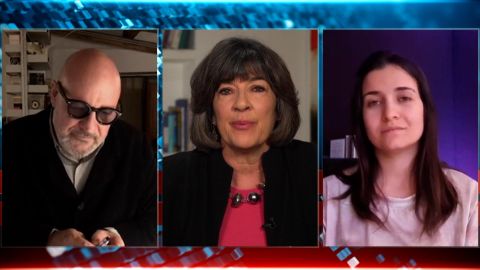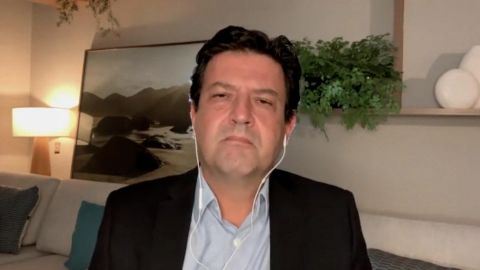Read Transcript EXPAND
WAAD AL-KATEAB, CO-DIRECTOR, “FOR SAMA”: Yes, thank you first. And yes, I mean, 10 years ago exactly we were, I think, at home, like trying to know what’s happening in Syria. There was like small protests, started like in (INAUDIBLE). There’s one in Damascus. And we were just like watching without really news, because the regime was shutting down all the channels, all the — like the truth of what was happening. And during these 10 years, we’ve like learned so much about weapons and attacks. And we saw the violence from minute one of the revolution when the regime start to shut us like directly when we were protesting and then start like to shell and bomb the whole areas and whole neighborhoods with cities, later on with chemical weapon, with seizing like cities, with attacking hospitals, schools and everything you can see, like a very small part in “For Sama.” Like through these 10 years, we’ve never expected that the whole world will stay watching as they are until now. And yes, I mean, it’s war but it started as a revolution, as a call for dignity, for freedom, for a better life for us and for our children.
CHRISTIANE AMANPOUR: And it’s still, as you say, so unresolved and it’s, in a different way, war is continuing against the people there economically in many, many other different ways. I want to ask you, Gianfranco Rosi, because “Notturno,” is a very, very different look at Syria. And I know that you spent some three years. And it is a remarkable outsider’s view of what’s going on. It’s almost like you plonked your camera down and you observe, there’s no ration, there’s no you in it, so to speak. What inspired you to take that route to telling this story?
GIANFRANCO ROSI, DIRECTOR, “NOTTURNO”: Well, you know, we talked four years ago when I did “Fire at Sea.” And it was exactly the same time, the time I was nominated for the Oscar. And tonight, I know I’m not nominated for the Oscar. We arrived the short list that we didn’t make the next step. And at the time, the team was extremely political film. It was a time when Lampedusa, this little island in the middle of Mediterranean Sea became the doors of Europe. You know, people were escaping from Syria, from Iraq, from — you know, from — and arriving to Lampedusa, this little island where I spent three years to make the film. And then, my next step was, as an outsider, is to say — because this is like — you know, I can feel like incredible being there and I am an outsider. And being an outside, for me, it took me three years. It took me three years to make you feel that somehow, I think is parable that tells the tragedy of destiny and somehow the betrayed of history.
About This Episode EXPAND
Former Brazilian health minister Luiz Henrique Mandetta discusses the COVID-19 crisis in his country. Salesforce CEO Marc Benioff joins Hari Sreenivasan to discuss vaccines, taxing the rich and the future of work in the U.S. Filmmakers Waad Al-Kateab and Gianfranco Rosi reflect on 10 years of war in Syria.
LEARN MORE


